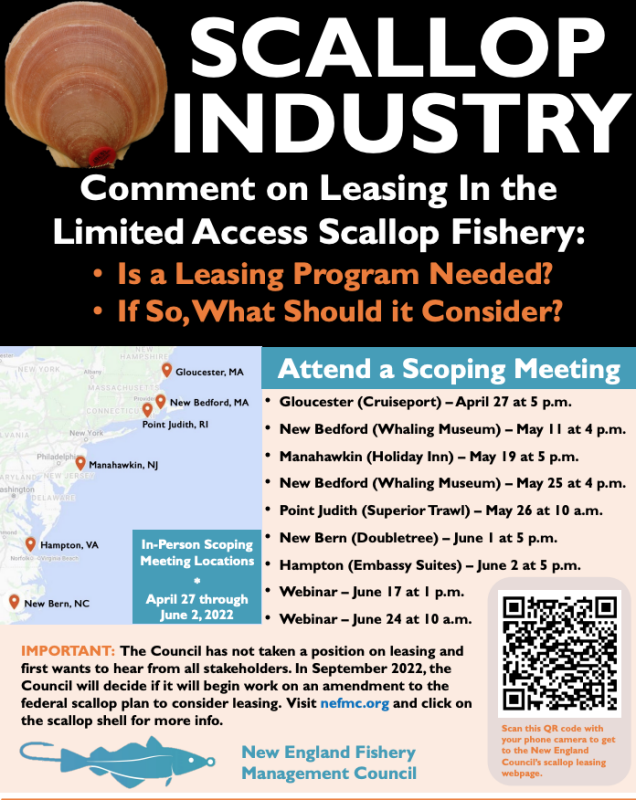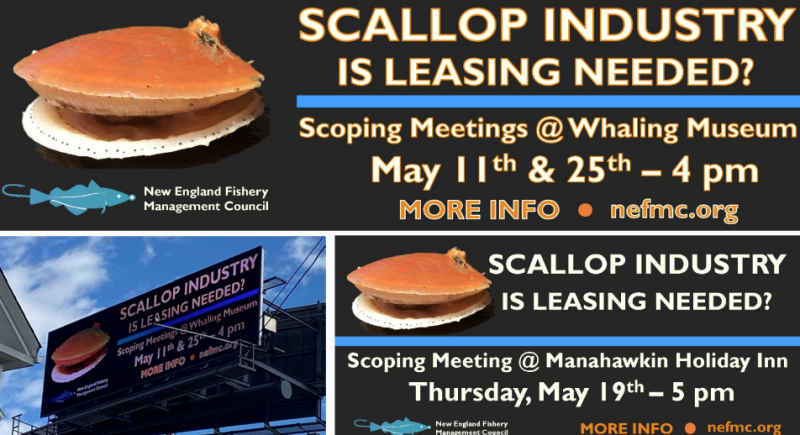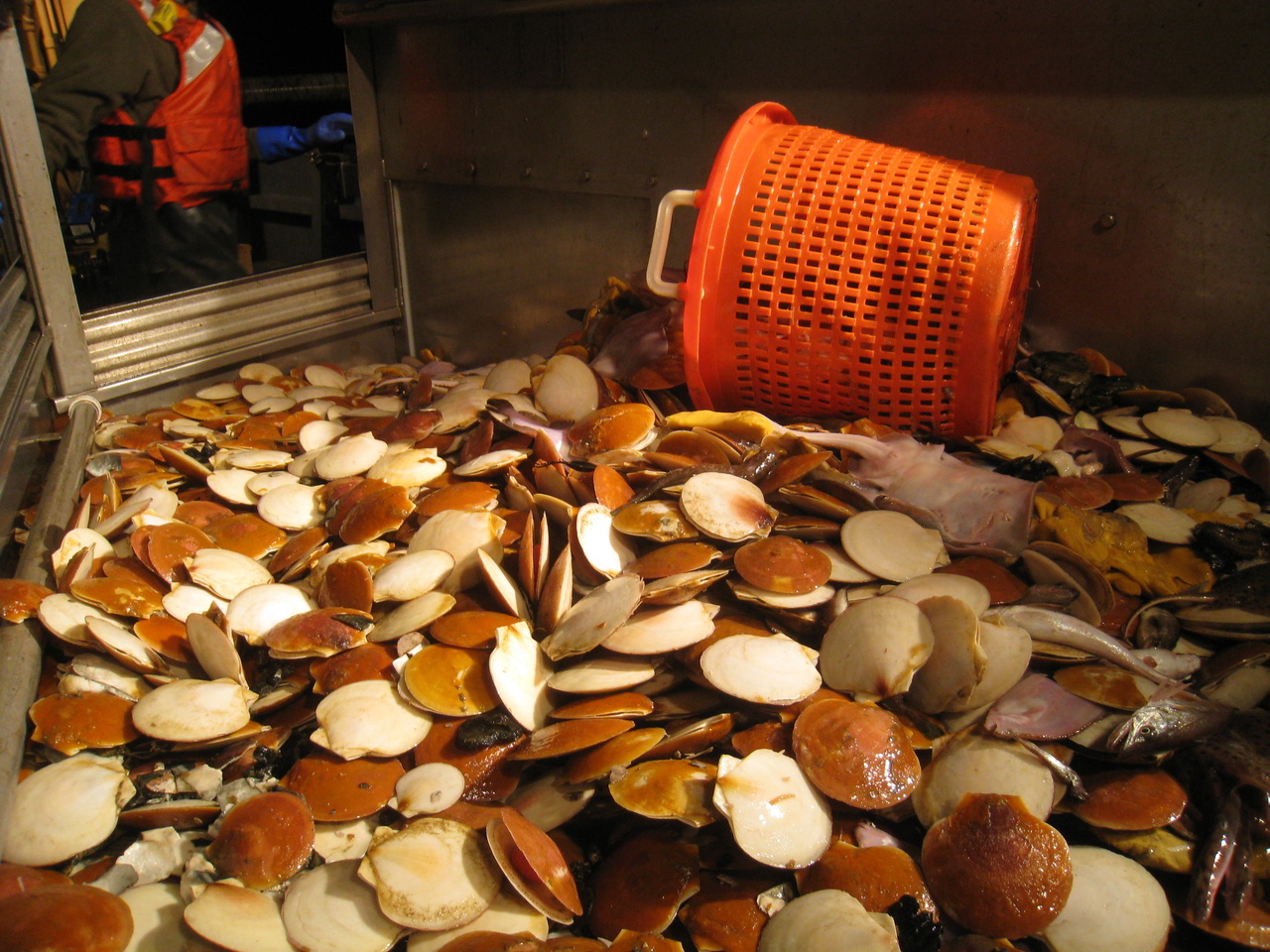The possibility of allowing leasing in the Atlantic scallop fishery will be explored by the New England Fishery Management Council in the coming weeks.
A preceding publicity campaign aims to get everyone in the industry out to comment in public meetings. It’s a first step for the council to investigate whether a days-at-sea and access area leasing program is needed in the limited access component of the scallop fishery.
Depending on what they learn, council members could vote to initiate a leasing amendment to the scallop management plan when they meet Sept. 27-29 in Gloucester, Mass.
Leasing has been suggested by some scallop operators, and the council approved a scoping plan at its April 12-14 meeting in Mystic, Conn. It calls for public meetings from Gloucester to New Bern, N.C., starting April 27, plus two online webinars in June, to gauge opinions.
The proposal could have broad effects, so the council is looking to go in depth.
Since the onset of limited entry fishery rules in 1994 there have been concerns about long-term consolidation, so the discussion is certain to have that as one focus.
Another issue could be how leasing might affect captains and crews and their job opportunities. They have shared for years in the Atlantic sea scallop fishery since it was rebuilt from its lowest points in the 1990s. It’s now by far one of the most valuable at $570 million for 60.6 million pounds in 2019, according to National Marine Fisheries Service statistics.
The first scoping meeting April 27 in Gloucester will be held at the Cruiseport at 5 p.m., and the complete schedule is posted on the council’s web pages.

“During the scoping meetings, the council is looking for input on fundamental questions about whether the public thinks a days-at-sea and access area leasing program is needed in the limited access component of the scallop fishery and, if so, what should the leasing program consider,” according to an introductory document from the council.
“The council does not have a position on leasing,” the introduction stresses. ‘It is conducting these scoping meetings at the request of a segment of the scallop fishery and first wants to canvass the public and industry-at-large to gauge the degree of support for leasing.”
Among questions the council is posing:
• How could a leasing program affect permit holders and/or shoreside businesses?
• How could a leasing program affect captains and crews?
• If a leasing program is allowed, how could scallop vessels affect other fisheries?
• Should vessel power and efficiency adjustments be considered for days-at-sea leasing?
• Should there be limits on the amount of allocation a vessel can lease in? Is a leasing program needed in the limited access scallop fishery? Why or why not?
• What issues in the scallop fishery would a leasing program address – and how?
• What are the benefits and/or drawbacks of a leasing program?
• Are there other approaches or tools the council should consider that would provide flexibility?








